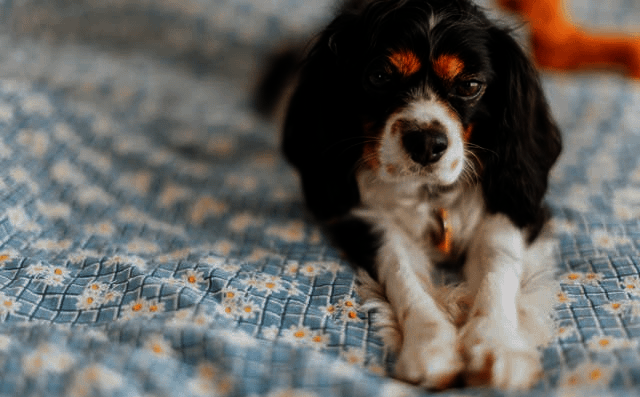
The Cavalier King Charles Spaniel is a charming and affectionate breed, renowned for its gentle nature and elegant appearance. This breed has deep historical roots in the UK, where it was a favourite among royalty and aristocracy. Today, it remains a beloved companion dog, prized for its loving disposition and adaptability.
History and Origin
The Cavalier King Charles Spaniel’s history can be traced back to the 16th century, where small toy spaniels were popular among European nobility. These spaniels were particularly favoured by King Charles II of England, after whom the breed is named. The breed as we know it today was developed in the early 20th century when enthusiasts sought to recreate the look of these historical spaniels, leading to the revival of the Cavalier King Charles Spaniel.
Physical Characteristics
- Size: The Cavalier King Charles Spaniel is a small breed, typically standing between 30-33 cm at the shoulder.
- Weight: They usually weigh between 5.9-8.2 kg, with females often being slightly lighter than males.
- Body: They have a compact and well-proportioned body, with a graceful appearance. Their body is slightly longer than it is tall, giving them a balanced, elegant look.
- Coat: The Cavalier has a medium-length, silky coat that may have a slight wave. Their coat comes in four recognised colour combinations: Blenheim (chestnut and white),Tricolour (black, white, and tan),Black and Tan, and Ruby (solid red).
- Face: They have a sweet, expressive face with large, dark eyes that convey a gentle and loving nature. Their ears are long and feathered, adding to their regal appearance.
- Tail: Their tail is usually well-feathered and carried in line with their back.
Temperament
The Cavalier King Charles Spaniel is known for its affectionate and friendly temperament. They are incredibly social dogs that thrive on human companionship. Cavaliers are gentle and get along well with children, other dogs, and even cats, making them excellent family pets. They are also known for being eager to please, which makes training relatively straightforward.
Cavaliers are versatile dogs that can adapt to a variety of living situations, from bustling family homes to quieter, single-person households. They are equally happy playing in the garden as they are cuddling on the sofa. While they are generally well-mannered, they do not like being left alone for extended periods, as they can suffer from separation anxiety.
Health and Lifespan
Cavalier King Charles Spaniels have an average lifespan of 10-14 years. However, like all breeds, they are prone to certain health issues:
- Mitral Valve Disease (MVD): A common heart condition in the breed that can lead to heart failure. Regular vet check-ups are essential to monitor heart health.
- Syringomyelia: A neurological condition affecting the spinal cord, causing pain and discomfort.
- Hip Dysplasia: A condition where the hip joint doesn't fit together perfectly, leading to arthritis over time.
- Eye Problems: They can be prone to various eye conditions, including cataracts and retinal disorders.
Early detection and management of these conditions are crucial in maintaining the health and wellbeing of a Cavalier King Charles Spaniel.
Care and Grooming
- Exercise: Cavaliers are moderately active dogs that enjoy regular exercise. A daily walk of 30-45 minutes, combined with some playtime, usually meets their needs. They also enjoy activities like fetch or participating in dog sports.
- Grooming: Their silky coat requires regular grooming to prevent matting and to keep it looking its best. Brushing 3-4 times a week is recommended. Their ears, in particular, should be checked regularly and kept clean to prevent infections.
- Feeding: A balanced diet, appropriate for their age, weight, and activity level, is essential. It's important to monitor their weight as Cavaliers can be prone to obesity.
- Vet Visits: Regular veterinary check-ups are crucial to monitor their health and to catch any potential issues early.
Living Conditions
Cavalier King Charles Spaniels are adaptable dogs that do well in a variety of living situations. They are well-suited to both urban and rural environments and can live comfortably in flats as long as they receive adequate exercise. Cavaliers are indoor dogs that enjoy being close to their human family members, so they should not be left outside or in kennels.
Conclusion
The Cavalier King Charles Spaniel is a delightful breed that combines a rich history with a loving and adaptable nature. Their friendly disposition and gentle temperament make them excellent companions for a wide range of households. With proper care and attention to their health needs, Cavaliers can bring joy and affection to their families for many years.
You can take a look at all of our Cavalier King Charles Spaniels for sale or feel free to contact us if you have any questions.